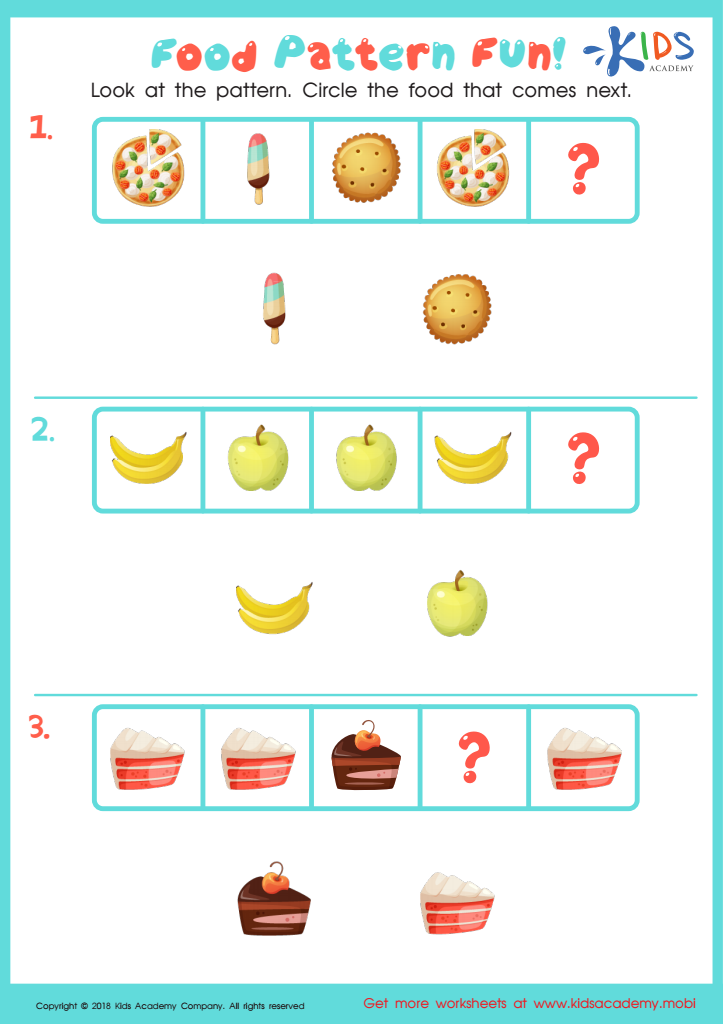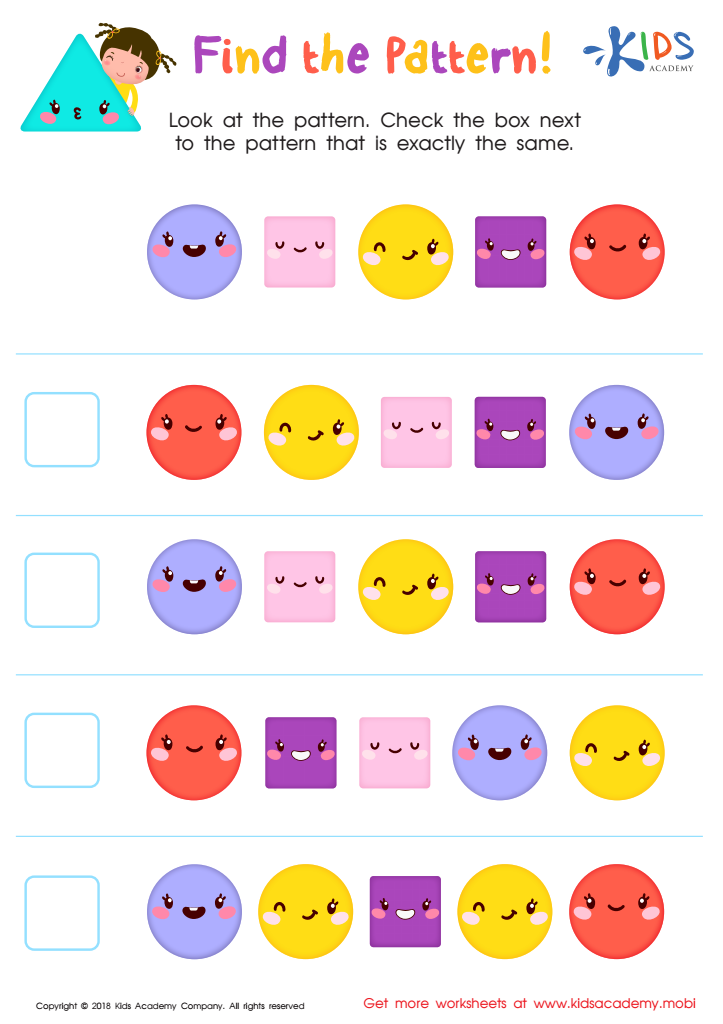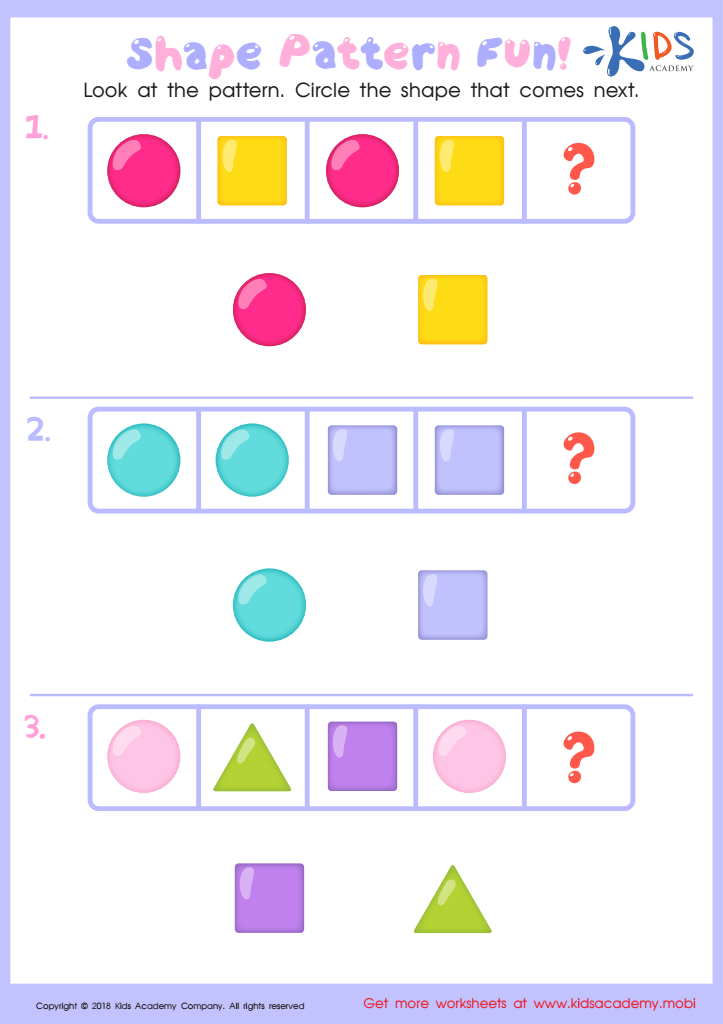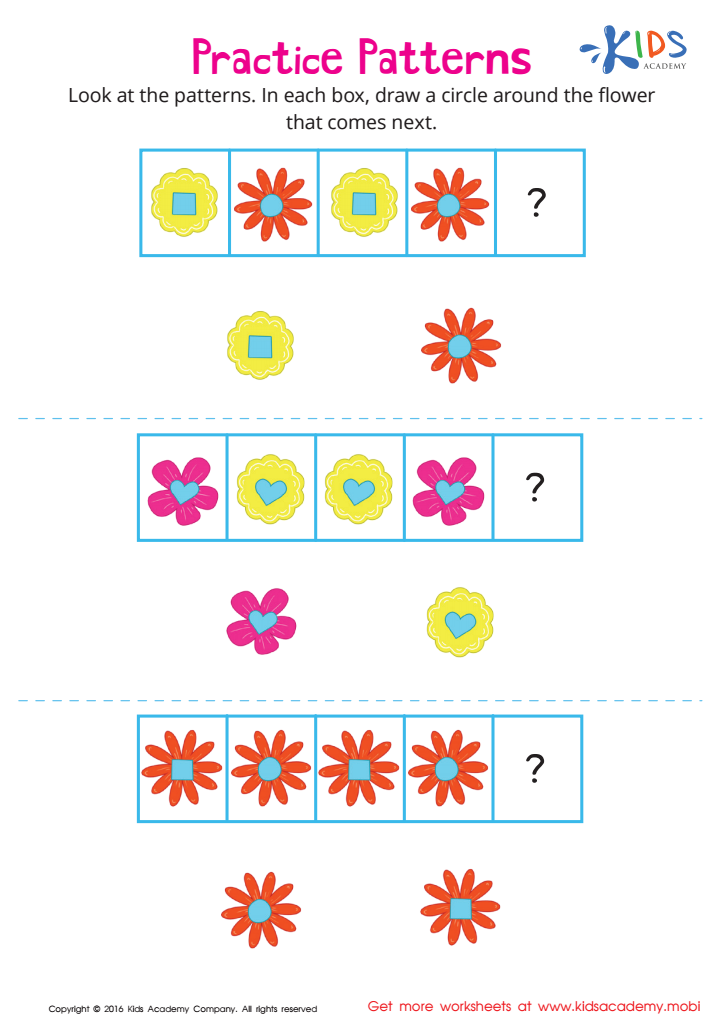Pattern recognition Normal Matching Worksheets for Ages 4-7
6 filtered results
-
From - To
Discover our engaging Pattern Recognition Normal Matching Worksheets designed for children ages 4-7! These worksheets are perfect for young learners to enhance their cognitive abilities while having fun. Through colorful illustrations and age-appropriate challenges, kids will practice identifying and matching patterns, strengthening their observational skills and logical thinking. Each worksheet promotes concentration and creativity, making it an ideal resource for both home and classroom learning. These printable resources are easy to access and designed to foster an interactive learning experience. Get started today, and watch your child develop essential skills that lay the foundation for future success in math and beyond!


Food Pattern Fun Worksheet


Find the Pattern Worksheet


Make the Same Pattern Worksheet


Logic Game Sorting Worksheet


Shape Pattern Fun Worksheet
Pattern recognition and normal matching are crucial cognitive skills for children aged 4-7, offering foundational benefits that extend far beyond early education. At this stage, children are naturally curious and begin developing the ability to identify and understand patterns in their environment. These skills lay the groundwork for critical thinking and problem-solving abilities.
Parents and teachers should prioritize pattern recognition, as it enhances mathematical understanding. Recognizing patterns helps children grasp concepts such as addition and subtraction, fostering a solid foundation for more complex math later on. Furthermore, pattern recognition is integrated into other subjects, including reading, where recognizing letter combinations and sounds is essential.
Developing normal matching skills, such as distinguishing between similar objects or concepts, nurtures attention to detail and observational skills. This promotes cognitive flexibility and adaptability, which are vital as children encounter diverse learning scenarios. Additionally, these skills facilitate social interactions by helping children recognize social cues and dynamics.
Encouraging pattern recognition and matching lays the groundwork for efficient learning, supports emotional regulation, and aids in the development of a sense of order in a child's world. Ultimately, investing in these skills helps prepare young learners for future academic success and everyday challenges.
 Assign to My Students
Assign to My Students
















